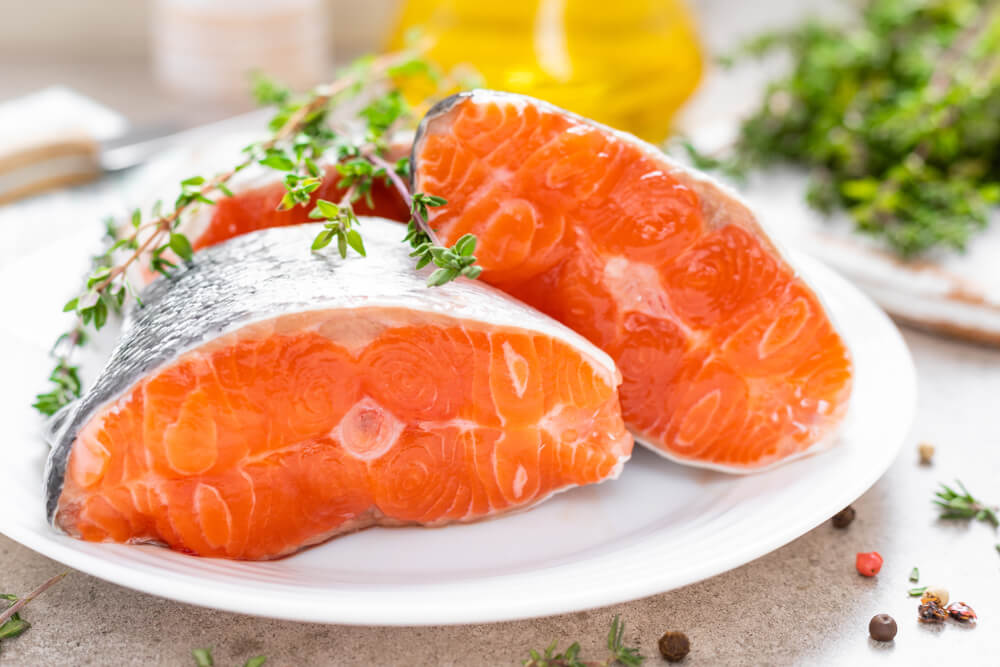Fat has a bad reputation.
For years, fat has been demonised as the cause of obesity and myriad health problems and the food industry has bombarded us with thousands of ‘low fat’ products
But actually fat is essential for a healthy body and is vital for any diet designed to improve your physique.
That’s why we’re going ‘Back to Basics’ to show exactly why you need fat in your diet, which fats you should be eating and everything else you need to know to about fat to optimise your nutrition.
It follows on from our ‘Back to Basics’ guides on Carbs and Protein which set out exactly what you should know to get your diet right for optimal body composition.
Fat Makes You Fat?
Of all the macronutrients, dietary fat has the worst reputation. It’s been linked to the obesity crisis, high cholesterol, and even heart disease.
Where this myth has likely come from is the fact that fats are calorie dense.
Every 1g of fat contains nine calories, compared to protein and carbs which both contain just four calories per 1g.
This doesn’t mean eating fat will make you fat, rather, it means it’s just easier to over-consume calories from fat. Ultimately, it is the additional calories above what the body needs that will cause fat storage, rather than the macronutrient itself that’s to blame.

Why do we need fat?
Fat is an essential nutrient (along with protein) for the body, and it is involved in multiple important processes that help keep the body functioning optimally.
Here’s a few:
- Fat is important for the absorption of fat-soluble vitamins through the small intestine (Vitamins A, D, E, and K). If you want the goodness from those veggies you’re eating, you need fat in your diet.
- Fat is needed to maintain cell membrane health. Cell membranes surround every cell in your body, and their health is critically important in managing inflammation and metabolism.
- Fat is key in regulating hormonal production.
- Fat is a great energy source when on low carbohydrate diets.
What type of fat is good?
It’s important to have a wide range of fats in your diet. Saturated (animal fat, eggs, coconut oil, butter), monounsaturated (olive oil, avocado, nuts) and polyunsaturated (fish oil, flax seed) fats all have their own role to play in the body.
For example, saturated fats are great for cholesterol and hormonal synthesis, whilst monounsaturated seem to have positive effects on blood lipids (increased HDL, reduced LDL).
The most popular and beneficial type of polyunsaturated fat is fish oils, and specifically, omega 3s.

Omega 3s and 6s
Omega 3 fish oil is high in two specific fatty acids: eicosapentaenoic acid (EPA) and docosahexaenoic acid (DHA).
A plethora of research has been carried out on omega 3s, showing benefits including reduced inflammation, improved blood lipids, reduced heart disease risk, and improved fat loss.
Another polyunsaturated fat that gets a lot of attention is omega 6, which has both anti- and pro-inflammatory effects.
But if you examine a typical Western diet, it is severely lacking in the omega 3s both EPA and DHA, and is over-reliant instead on omega 6s.
The problem with this is that the enzymes involved in production of eicosanoids can use either omega 3s or omega 6 fats and will use whichever is available. If we are deficient in omega 3s the body will mostly use omega 6s and produce versions of eicosanoids that are more inflammatory.
EPA and DHA also act on other physiological pathways to inhibit the promotion of inflammation, so missing out on them is a double whammy for inflammation.
Long-term, this type of diet will also have negative effects on the cell membranes,
Long-term, this type of diet will have negative effects on the cell membranes, making them more insulin resistant.
So, the focus in any good diet should be to include a moderate fat intake with additional EPA/DHA through a high-quality fish oil product (around 3g-6g daily).

Trans Fats
Much of the bad rap surrounding fats is due to trans fats, and deservedly so.
These are the only types of fat we would actively recommend to avoid.
These fats are ‘man made’ by turning a typically soft or liquid fat into a hardened fat by bubbling hydrogen through it – often done with the aim of extending the shelf life of the product.
This comes with a host of health issues, including poor blood lipid profiles, increased inflammation, and endothelial dysfunction.
How Much Fat?
This really does depend on how the rest of your diet is set up.
Specifically, it will be related to your carbohydrate intake.
In most cases, once the daily protein target is set, it rarely deviates. However, fat and carbohydrate are a lot more flexible.
If you’re on a low carb diet, where you’re eating only trace carbohydrates from green vegetables, your fat intake can be set anywhere from 50% to 70% of your total calorie intake.
If you’re on a moderate to high carb diet, keeping it around 20-30% of your total calories works well for optimal performance.
The only time you want to go below the 20% mark with your fat intake is for short pushes on diets if needed and for a maximum period of two or three weeks.

How do I know which diet to follow?
Sadly, it’s hard to give specific guidelines, as it really does depend on the individual, and what diet they feel best on.
If you want an insight into what factors you need to consider when designing the right diet for yourself, have a read of our nutrition articles.
At UP, what we typically do is start inflamed clients off with a low carb, higher fat plan and then gradually introduce carbohydrates into the diet as the client gets leaner.
Does timing matter for fats?
Unlike protein and carbs, nutrient timing is less important with fats other than for reasons of taste or calorie distribution throughout the day.
The only time you may want to avoid fats is during and immediately post workout, where you may be taking in a lot more carbohydrates, and don’t want to slow digestion down.
During the other times, spreading your fat intake out through the day is the best option.
To sum up…
Fat doesn’t make you fat, and it won’t kill you!
If you eat the right fats in the right amounts, it’ll be very beneficial for both your health and your body composition.



